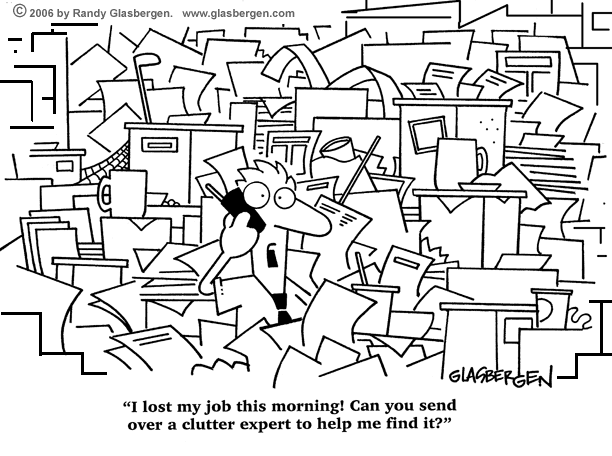 I consider myself still ‘new’ to the world of being an author. Also, while I have learned a lot about starting and finishing a book project along with self-publishing, I’m still learning things. People frequently tell me about books they’ve thought to write along with asking questions on how to go about their projects. I’m happy to share what I’ve learned, because while book writing and self-publishing is kind of a crazy prospect, it’s also one I’ve found I greatly enjoy!
I consider myself still ‘new’ to the world of being an author. Also, while I have learned a lot about starting and finishing a book project along with self-publishing, I’m still learning things. People frequently tell me about books they’ve thought to write along with asking questions on how to go about their projects. I’m happy to share what I’ve learned, because while book writing and self-publishing is kind of a crazy prospect, it’s also one I’ve found I greatly enjoy!
I’ve been considering writing a blog post including some tips from my experience writing and publishing, and after some recent questions — it’s time! Here are some ideas for you to consider on how to make writing a book a more manageable project. As I think up more tips I’ll blog about those too, so keep your eye here…
Reduce Redundancy
 My first book was a recipe book. I was told later by a more experienced self-published (and well researched) author that this is one of the more difficult types of books to write. As I started my project I gave thought as to how I might make crafting my book as efficient as possible. While I established a few things, I made LOADS of newbie mistakes.
My first book was a recipe book. I was told later by a more experienced self-published (and well researched) author that this is one of the more difficult types of books to write. As I started my project I gave thought as to how I might make crafting my book as efficient as possible. While I established a few things, I made LOADS of newbie mistakes.
In most cases a writer/author will go through their manuscript dozens if not countless times. We check what we wrote, we rewrite for better quality — any number of reasons. While this is important, it devours tons of time. Increased labor can lead to lost passion in ones project — among other troubles.
One of the tips I received was to complete your writing (in MS Word, Notepad, etc), develop and decide upon your formatting, then as a last or near-to-last step go through your manuscript applying these characteristics. If there is any way to work with a template that includes universal changes, all the better.

Work With A Schedule
Most of us are not full time writers and this happens on its own. Our available writing time is structured as a result of a job, taking care of our family and pets, et cetera. In either case, blocking-out time gives us …
- Opportunity to write and work on the other aspects of our book projects
- Self-discipline, structured progress, and removal of excuses not to work/write
- A mechanism to tell those around us “Do Not Disturb” during a particular window of time.
- A regular schedule slot to spend a little time promoting our books, ourselves as writers, and a time to engage with your followers

Take Breaks
Get some exercise, meditate, spend time with friends, do whatever it is you need to do to take care of you and to recharge your batteries. ‘All work (on your book) and no play’ wears most people down.
Correct Your Own Spelling, Grammar, and Punctuation As You Write
 This seems like a no-brainer to me, an automatic thing to do, but I was told by an editor-friend that many writers Do Not Do This. WWWWHHHYYYYY?!?!? Not delivering the best work possible to an editor or publisher is not only sloppy, it lacks professionalism, wastes time, and potentially gets you turned-down for opportunities.
This seems like a no-brainer to me, an automatic thing to do, but I was told by an editor-friend that many writers Do Not Do This. WWWWHHHYYYYY?!?!? Not delivering the best work possible to an editor or publisher is not only sloppy, it lacks professionalism, wastes time, and potentially gets you turned-down for opportunities.
Sure, you’re an artist — you’re creating stories, worlds, characters — but you’re also working within a language, and if you cannot show that you know that language reasonably well how can you write it or impress upon anyone that you can lead them in that language as an author?!? On some level you are a professional — if you get paid for even one copy of your book you are a professional — have some esteem. Give your product and brand — which is not just your book, your series, but also You — the best representation possible at all times.
If your writing is in reasonably good order when you give it to an editor then it will be more efficient for them to process your work. If you are paying them then that can mean it costs you less. If you present writing to a publisher that is well put together, then you look well put together — you present yourself as a professional — they can comprehend your work and are going to be more likely to want to work with you. It should go without saying but also…
Have All Of Your Writing And Supporting Notation In Order
 Do not hand a mismanaged stack of papers to an editor or publisher for consideration. Don’t give the excuse that organizing your work is someone else’s job or that they get paid for it. NO, It Is Your Job. “But it’s hard and confusing” — that’s an excuse — it’s difficult and confusing for someone else. “It takes time away from being creative” — another excuse — if you know your characters/world/story then it ought to be little trouble for you to get this in order. “I don’t feel like it” — Boo Hoo — I don’t feel like a lot of things, but buck up, that’s the job of a writer Vrs the half-effort of a slacker. Get it Done. Give someone your manuscript, not your mess.
Do not hand a mismanaged stack of papers to an editor or publisher for consideration. Don’t give the excuse that organizing your work is someone else’s job or that they get paid for it. NO, It Is Your Job. “But it’s hard and confusing” — that’s an excuse — it’s difficult and confusing for someone else. “It takes time away from being creative” — another excuse — if you know your characters/world/story then it ought to be little trouble for you to get this in order. “I don’t feel like it” — Boo Hoo — I don’t feel like a lot of things, but buck up, that’s the job of a writer Vrs the half-effort of a slacker. Get it Done. Give someone your manuscript, not your mess.
Backup Your Hard Drive
 Think about how much time you spend writing and bringing a book to fruition. Time is money and hundreds of hours equates to thousands of dollars. Now think about losing all of your work, all of your research, all of your notes, all of your development, and what it would take to recreate everything. That’s not even considering the emotional impact. I am speaking from the voice of experience — my first book was nearly done after (+/-) a year when the hard drive on my computer died. It took another two years to recreate and completed my project — and that was partly with finding an early backup I forgot I had made. Backing up your hard drive really takes little time. Today there are products on the market that will do it automatically for you. I cannot stress enough … BACKUP YOUR HARD DRIVE.
Think about how much time you spend writing and bringing a book to fruition. Time is money and hundreds of hours equates to thousands of dollars. Now think about losing all of your work, all of your research, all of your notes, all of your development, and what it would take to recreate everything. That’s not even considering the emotional impact. I am speaking from the voice of experience — my first book was nearly done after (+/-) a year when the hard drive on my computer died. It took another two years to recreate and completed my project — and that was partly with finding an early backup I forgot I had made. Backing up your hard drive really takes little time. Today there are products on the market that will do it automatically for you. I cannot stress enough … BACKUP YOUR HARD DRIVE.

 I consider myself still ‘new’ to the world of being an author. Also, while I have learned a lot about starting and finishing a book project along with self-publishing, I’m still learning things. People frequently tell me about books they’ve thought to write along with asking questions on how to go about their projects. I’m happy to share what I’ve learned, because while book writing and self-publishing is kind of a crazy prospect, it’s also one I’ve found I greatly enjoy!
I consider myself still ‘new’ to the world of being an author. Also, while I have learned a lot about starting and finishing a book project along with self-publishing, I’m still learning things. People frequently tell me about books they’ve thought to write along with asking questions on how to go about their projects. I’m happy to share what I’ve learned, because while book writing and self-publishing is kind of a crazy prospect, it’s also one I’ve found I greatly enjoy! My first book was a recipe book. I was told later by
My first book was a recipe book. I was told later by 

 This seems like a no-brainer to me, an automatic thing to do, but I was told by an editor-friend that many writers Do Not Do This. WWWWHHHYYYYY?!?!? Not delivering the best work possible to an editor or publisher is not only sloppy, it lacks professionalism, wastes time, and potentially gets you turned-down for opportunities.
This seems like a no-brainer to me, an automatic thing to do, but I was told by an editor-friend that many writers Do Not Do This. WWWWHHHYYYYY?!?!? Not delivering the best work possible to an editor or publisher is not only sloppy, it lacks professionalism, wastes time, and potentially gets you turned-down for opportunities. Do not hand a mismanaged stack of papers to an editor or publisher for consideration. Don’t give the excuse that organizing your work is someone else’s job or that they get paid for it. NO, It Is Your Job. “But it’s hard and confusing” — that’s an excuse — it’s difficult and confusing for someone else. “It takes time away from being creative” — another excuse — if you know your characters/world/story then it ought to be little trouble for you to get this in order. “I don’t feel like it” — Boo Hoo — I don’t feel like a lot of things, but buck up, that’s the job of a writer Vrs the half-effort of a slacker. Get it Done. Give someone your manuscript, not your mess.
Do not hand a mismanaged stack of papers to an editor or publisher for consideration. Don’t give the excuse that organizing your work is someone else’s job or that they get paid for it. NO, It Is Your Job. “But it’s hard and confusing” — that’s an excuse — it’s difficult and confusing for someone else. “It takes time away from being creative” — another excuse — if you know your characters/world/story then it ought to be little trouble for you to get this in order. “I don’t feel like it” — Boo Hoo — I don’t feel like a lot of things, but buck up, that’s the job of a writer Vrs the half-effort of a slacker. Get it Done. Give someone your manuscript, not your mess. Think about how much time you spend writing and bringing a book to fruition. Time is money and hundreds of hours equates to thousands of dollars. Now think about losing all of your work, all of your research, all of your notes, all of your development, and what it would take to recreate everything. That’s not even considering the emotional impact. I am speaking from the voice of experience — my first book was nearly done after (+/-) a year when the hard drive on my computer died. It took another two years to recreate and completed my project — and that was partly with finding an early backup I forgot I had made. Backing up your hard drive really takes little time. Today there are products on the market that will do it automatically for you. I cannot stress enough … BACKUP YOUR HARD DRIVE.
Think about how much time you spend writing and bringing a book to fruition. Time is money and hundreds of hours equates to thousands of dollars. Now think about losing all of your work, all of your research, all of your notes, all of your development, and what it would take to recreate everything. That’s not even considering the emotional impact. I am speaking from the voice of experience — my first book was nearly done after (+/-) a year when the hard drive on my computer died. It took another two years to recreate and completed my project — and that was partly with finding an early backup I forgot I had made. Backing up your hard drive really takes little time. Today there are products on the market that will do it automatically for you. I cannot stress enough … BACKUP YOUR HARD DRIVE.